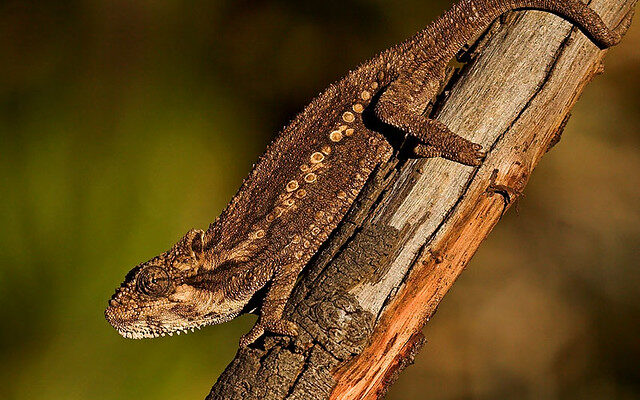A dramatic scene unfolded at the Lusaka Magistrates’ Court when an immigration officer revealed that police had disposed off a live chameleon linked to a witchcraft case, leaving the court without one of the most anticipated pieces of evidence.
The absence of the chameleon, which was expected to be presented before the court, led to murmurs of disappointment from the audience.
Immigration officer, George Mwale, who had testified on behalf of the prosecution, was unable to produce a disposal form for the missing creature, which sparked speculation about its fate.
During his testimony, Mwale displayed an assortment of items allegedly used in an attempt to bewitch President Hakainde Hichilema by the two accused men.
Among the items were 14 bottles filled with mysterious substances, a red cloth, and a traditional whisk, believed to be crucial tools in a sinister ritual.
Mwale admitted to feeling unsettled when he first encountered the alleged charms but struggled under cross-examination to substantiate claims that the items posed a real threat to the President.
Defense lawyer Agripper Malando pressed him, questioning why, if the items were indeed dangerous, he had handled them without any consequences.
The two men, Jasten Mabulesse Candude from Mozambique and Leonard Phiri, are accused of attempting to harm President Hichilema through sorcery.
The case traces back to November 22, 2024, when Mwale and eight other immigration officers conducted a raid at an apartment in Lusaka’s Roma area along Zambezi Road.
The operation, which began as an investigation into foreign nationals, took an unexpected turn when a Mozambican suspect allegedly confessed to being hired for a witchcraft mission against the President.
Mwale testified that Candude claimed he had been recruited by former Petauke MP Emmanuel Jay Banda, who is currently on the run, through his younger brother, Nelson Banda, to carry out the ritual in exchange for K43,200,000.
Further investigations led officers to a bedroom where they allegedly discovered an array of charms, including the now-missing chameleon sealed in a bottle.
When asked whether he had suffered harm from handling the alleged charms, Mwale admitted he had not.
The defense highlighted this point, suggesting that if the items were truly harmful, he would have been affected by their presence.
Mwale also acknowledged that he had no proof that Candude’s mission was intended to harm the President.
He struggled to explain why he referred to the items as “charms” without verifying their contents or intended use.
When questioned specifically about the chameleon, Mwale confirmed that it was not inherently a charm but insisted that its inclusion in the ritual raised suspicions.
Testimonies from the landlord and housekeeper of the Roma apartment added further complexity to the prosecution’s case.
The landlord, Vivian Kapambalala, confirmed that the unit had been rented by Nelson Banda but admitted that there were no official records due to the unavailability of the logging book at the time.
She also stated that she had never personally seen any charms in the apartment.
The housekeeper, Chilufya Sitenge, recalled cleaning the apartment and noticing bags but was unable to confirm their contents.
She, too, was unaware of any supernatural activity occurring within the premises.
Candude and Phiri are facing charges under the Witchcraft Act Chapter 90 of the Laws of Zambia, including Professing Knowledge of Witchcraft and Possession of Charms.
The prosecution argued that their intent was to use supernatural means to instill fear and potentially harm the President.
WARNING! All rights reserved. This material, and other digital content on this website, may not be reproduced, published, broadcast, rewritten or redistributed in whole or in part without prior express permission from ZAMBIA MONITOR.












Comments